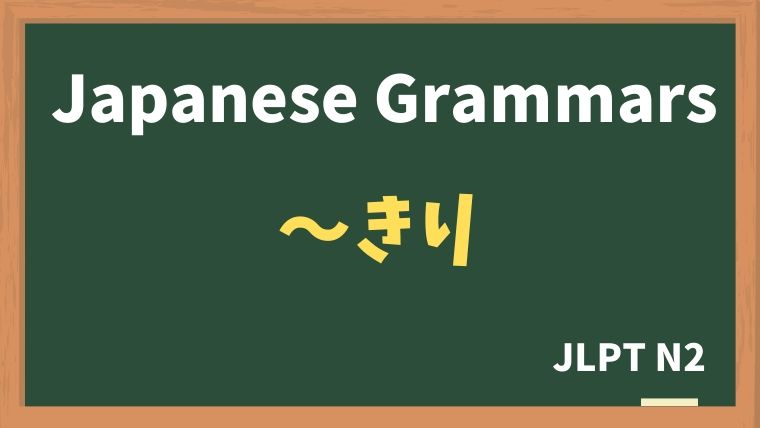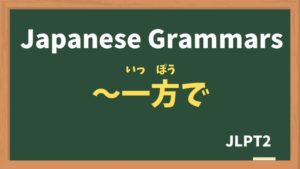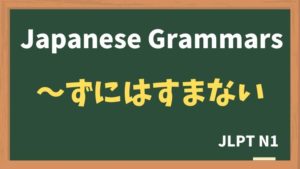
Explanation:〜きり
fa-check-circleMeaning
① 〜してから、そのままずっと・・・ない
Used to express that after a certain action occurs, nothing else happens or follows afterward. It implies that an expected continuation or return has not occurred. This form is often used when talking about situations where someone hasn’t returned or something hasn’t been repeated after the initial event. In English, it can be translated as "since" or "after," often with an implication of "never again" or "hasn't happened since."
② 〜だけ
Used to emphasize exclusivity or limitation, often implying that something happens only under specific conditions or that something is restricted to a single instance or a small group. It can be translated as "just," "only," or "limited to" in English, depending on the context.
fa-check-circleForm
① V(ta form) + きり
② N + きり
fa-check-circleJLPT Level
N2
Sample sentenes
1. 〜してから、そのままずっと・・・ない
息子は今日、家を出たきり、まだ帰ってきません。
My son left the house today and hasn't come back yet.
トムさんは30分まえにトイレに行ったきり、まだ戻ってきません。
Tom went to the bathroom 30 minutes ago and hasn't returned yet.
彼女とは別れたきり、一度も会っていない。
I haven't seen her once since we broke up.
今朝、パンを食べたきり、今日は何も食べてない。
I ate some bread this morning, and haven't eaten anything else today.
去年、韓国へ旅行したきり、旅行していない。
I haven't traveled since I went to Korea last year.
友達にお金を貸したきり、帰ってこない。
I lent money to a friend and haven't gotten it back.
2. 〜だけ
今度、二人きりで食事しない?
How about we have a meal together, just the two of us next time?
一度きりの人生だから、毎日楽しく生きたい。
We only have one life, so I want to live happily every day.
明日、国へ帰るので日本での生活もあと一日きりだ。
I'm returning to my home country tomorrow, so I only have one day left in Japan.
Vocabulary
| Japanese |
English | |
| 女優 | じょゆう | actress |
| 憧れる | あこがれる | to long for / to yearn for |






